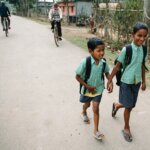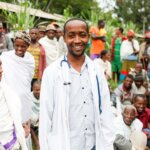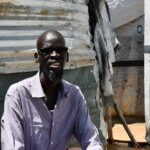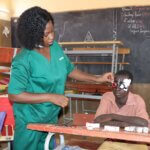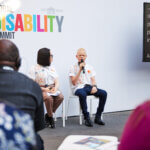- Disability Rights
- Inclusive Education
2023 marks the end of Light for the World’s involvement in promoting disability inclusion in Northeast India. Programme Coordinator Sigrid Baldinger shares lessons learned over nearly 20 years – and how the work will continue long after we’ve gone.
Light for the World has been partnering with Caritas India since 2005 to create pathways for people with disabilities to lead fulfilling lives at the centre of society in Northeast India. Too often, people with disabilities are left on the margins because they’re denied the education, health and livelihood opportunities that would allow them to participate fully.
Together with Caritas India, we supported communities to be more inclusive of people with disabilities. We also worked directly with people with disabilities, equipping them with the skills and tools to meaningfully participate in community life. The process is called disability inclusion in community development, and it works!
The project gave us an opportunity to know the rehabilitation and education of our child. The activities of daily living improved… and social inclusion was ensured.
Father of a child with a disability in Northeast India
So, what exactly is disability inclusion in community development (DICD)?
DICD is all about making sure that people with disabilities can live and thrive in their own communities. Inclusion and participation start from ensuring supportive conditions at home, at local schools and in the labour market.
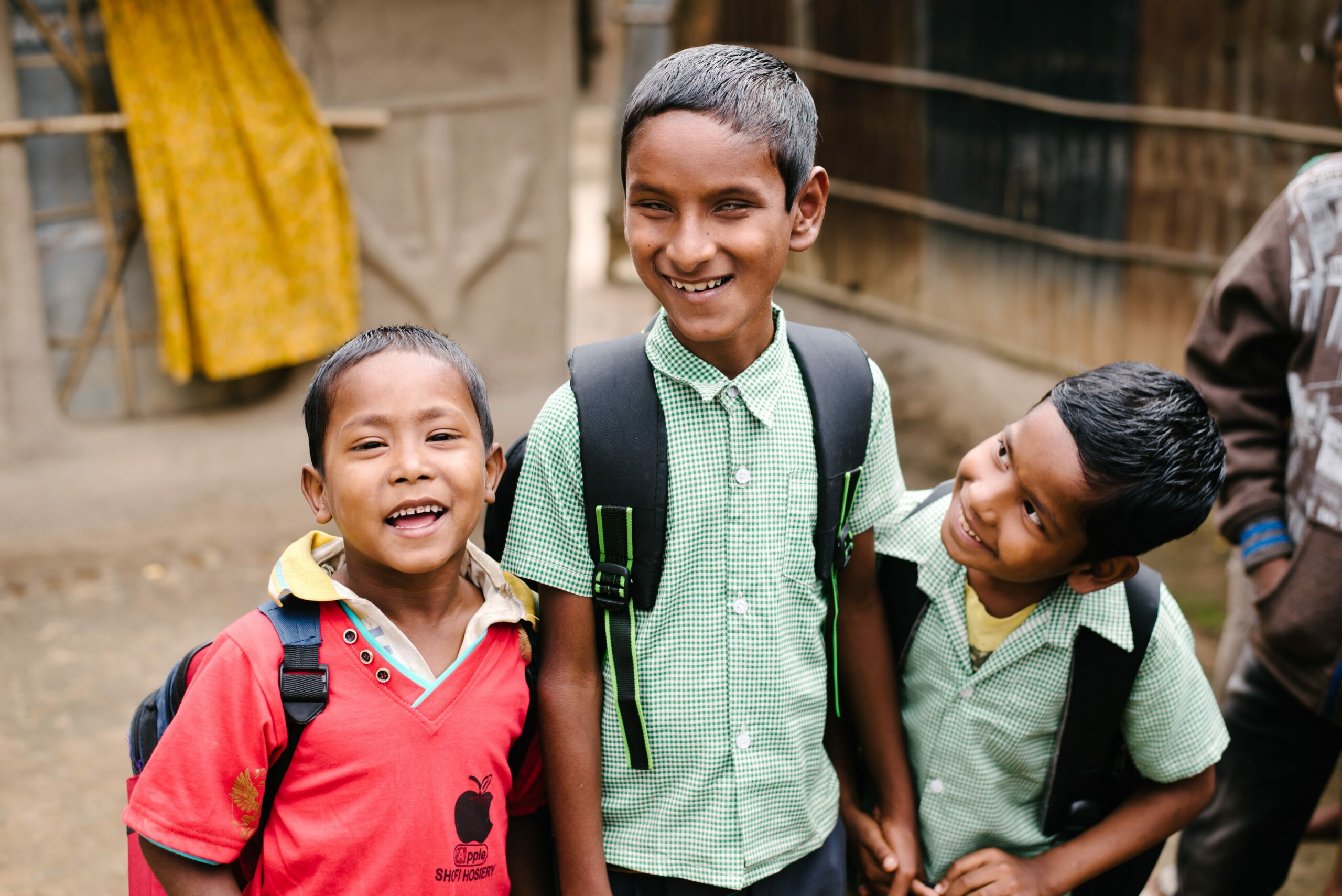
Light for the World works with DICD field workers who are dispersed in the community. They get to know local families and support those who have members with disabilities. The field workers provide assistance so that children with disabilities can, for example, attend their local school and receive adequate support in their education, so they can develop to their full potential and become active citizens.
What have we learned from our years implementing DICD in India?
“The biggest impact of the programme is promoting self-help groups and OPDs,” says K Kempaiah, a consultant at Caritas India. Encouraged by Light for the World and Caritas India, OPDs did not exist in many communities when the DICD programmes started.
Since then, however, OPDs have supported and empowered people with disabilities and their families to claim their space in local life and show that they have the ability to make a meaningful contribution.
Parents of children with disabilities have also come together to fight for the rights of their children and share knowledge on how to support their children’s development. As Caritas notes, bringing people together has created a lasting effect and an impactful body of knowledge which will continue beyond the existence of the projects.
“At its peak, the DICD programme reached 8,000 people with disabilities,” says K Kempiah. “We are confident that the community, together with organisations at the grassroots, will continue to take forward their agenda in fulfilling the needs of people with disabilities in future.”
DICD in action: Naresh’s story
Light for the World first came into contact with Naresh in February 2014, when he was nine. He was born almost totally blind. As a young child he was scared to go outdoors because he couldn’t see well, so he often stayed inside, separated from other children. He became very isolated and rarely interacted with anyone apart from his parents and two siblings.
The DICD field workers met Naresh on one of their community visits. They began visiting him regularly at home, engaging him in rehabilitation exercises and supporting him to go to a nearby school. Naresh gradually became more confident. He was able to help his mother with some daily activities and managed to make friends at school and in the local area, some of whom helped him to get to school each day.
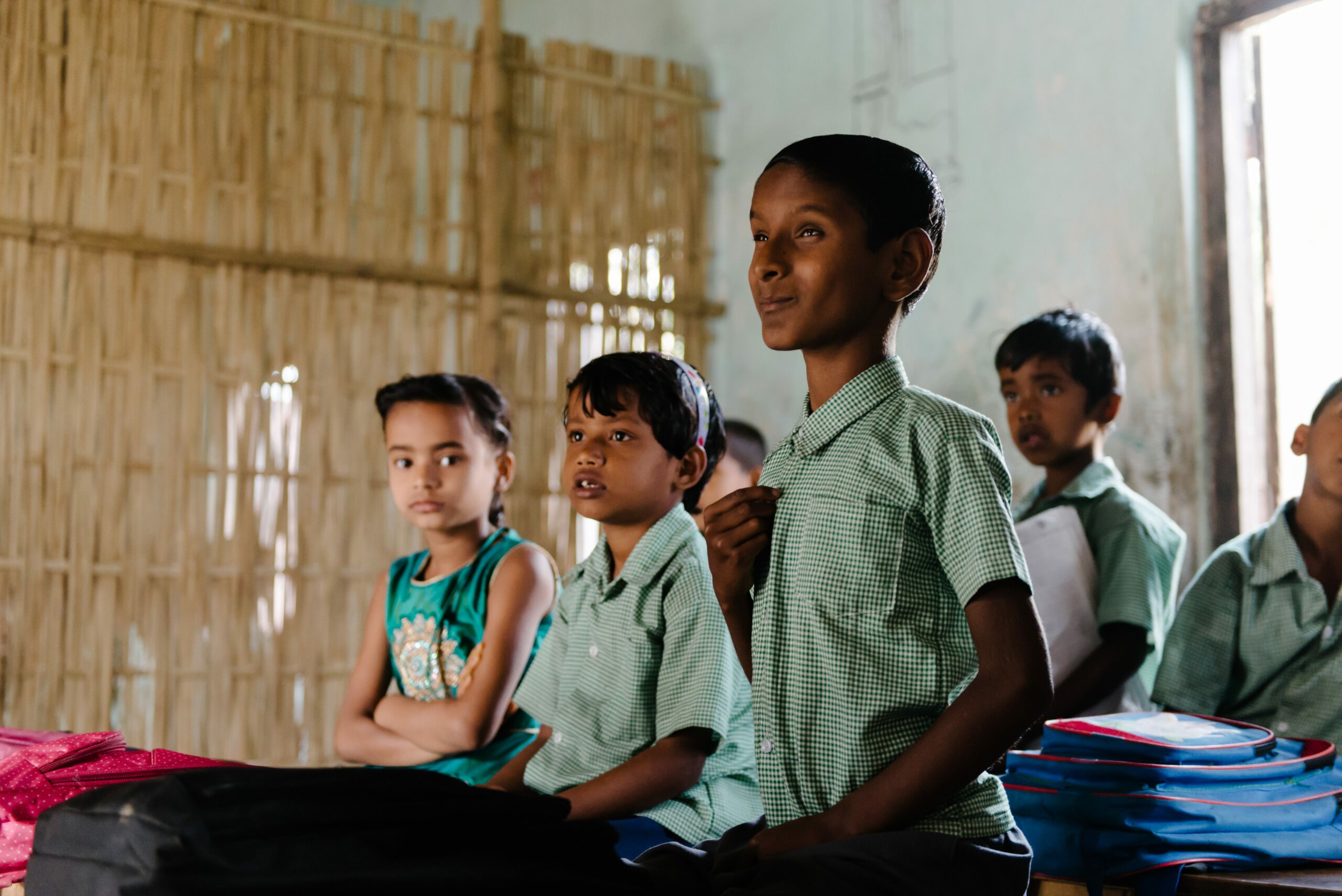
With support from the DICD team, he also received a disability certificate and enrolled in a government scheme for people with disabilities which provides financial assistance, a Braille kit and assistive devices such as a white cane.
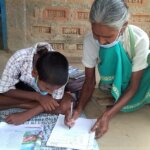
Now a teenager, Naresh is a positive and self-assured boy, and attends school regularly. He does many activities independently – studying, spending time with his friends in the neighbourhood, socialising or participating in various community events. Here, he is doing homework with his grandmother.
“I don’t let my disability deter me from my dream of becoming a teacher.”
Naresh, DICD participant in Northeast India
Why is Light for the World phasing out its work in India?
The work in India is still meaningful after all these years and the phase out from the area, which we will complete by the end of December 2023, has nothing to do with the quality of work on the ground. For Light for the World, it was a strategic decision to focus on Sub-Saharan Africa in order to ensure we don’t spread our support too thin.
The imperative thing for us is leaving behind sustainable projects which can continue to exist and make positive impact, but without our direct input.
How do we make the successful practice of DICD sustainable once we leave?
The sustainability of our projects in Northeast India is a priority for us.
As Tominic George of Caritas notes, together we have initiated several activities to achieve this as part of the phase-out: “These include capacity building in the areas of resource mobilisation, financial management, proposal writing, and putting a monitoring and evaluation system in place.”
Learn more in our joint report with Caritas India, where you can find tips on how best to set up DICD programmes in a sustainable way to ensure that the work lasts – and doesn’t do any harm.
“As a result of the programme, we have witnessed an enhanced quality of life for people with disabilities and their families, improved leadership and negotiation skills… and a willingness of stakeholders to implement the programmes that would benefit people with disabilities.”
Francis Angampu Maringmei, Caritas India
